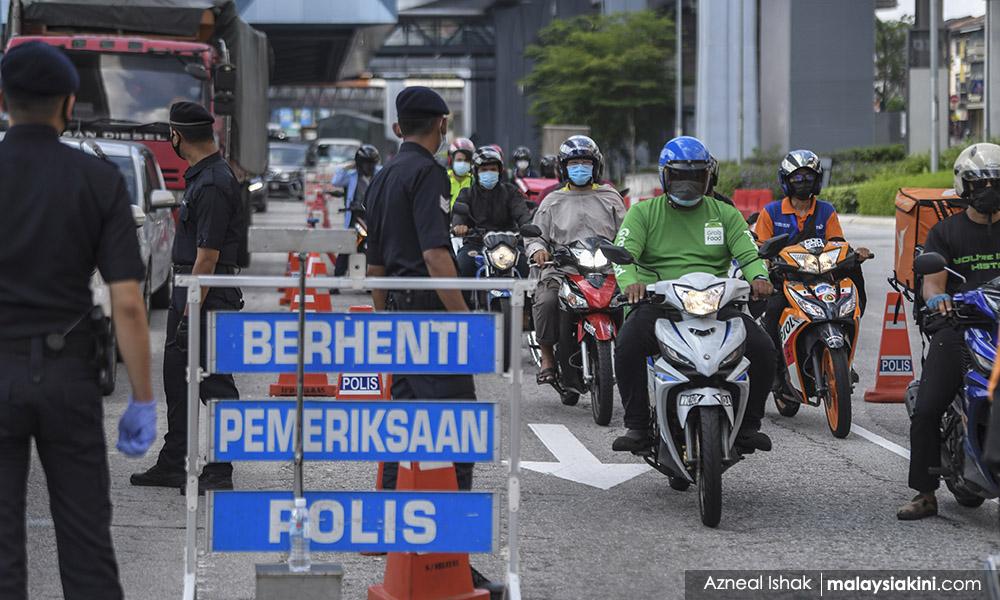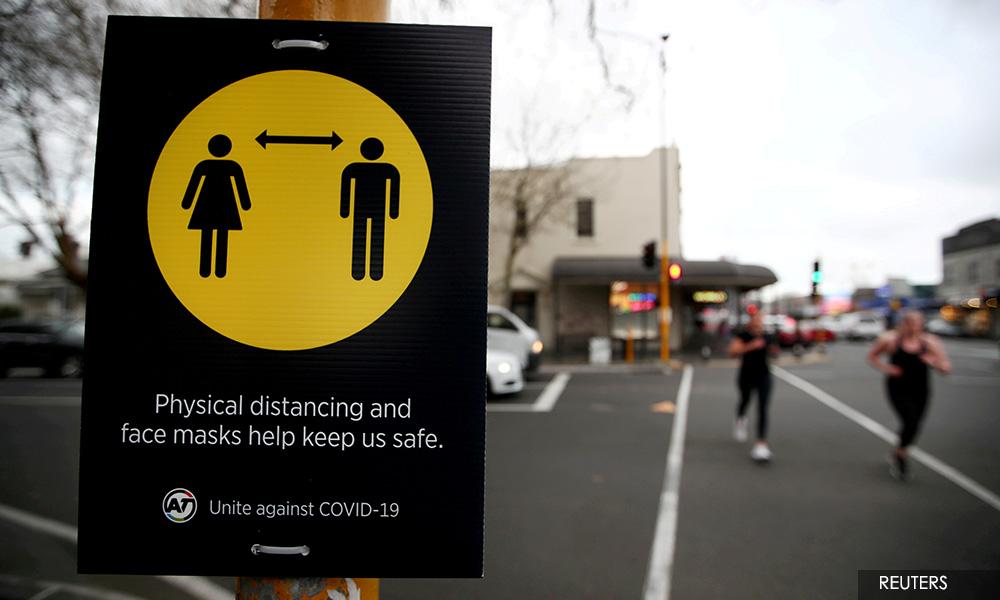It's political season in Malaysia – again. This is the time of year when political leaders go visiting. The pattern over the last two years is it is usually associated with a crisis – both a cause and result. It is a time when elites decide Malaysia’s leadership, with claimants appealing and dealing.
If it was not such a serious matter, one could get the impression that there is a new play opening with the same actors and a varied calibre of performances.
The fact is that what happens (or does not happen) over the next few weeks will determine who will helm Malaysia, for how long and at what cost. The decisions being made are not easy, with those involved assessing their interests and their visions of what is good for the country. At stake is the country’s fabric of democracy, its quality of governance and, given the handling of Covid-19, lives.
Two catalysts have re-instigated the politicking. Foremost is the reality that Malaysia is facing the most serious crisis in its history – and struggling. No one in the country needs to be retold of the realities. This is the first crisis the Malaysian government has not been able to buy its way out of.
In earlier crises, from the Asian Financial Crisis of 1997-1998 to even May 1969, the country was able to use resources to redress disgruntlement, and, if necessary, appeal to race-based politics to galvanise support and divide the opposition. Today, with worrying widening inequality and increasing vulnerability arising from the socio-economic consequences of Covid-19, the country is unified in its unhappiness.
From Sandakan to Setiawan, Baling to Bachok, Mersing to Masjid Tanah and Padawan to Puchong the political ground has hardened. While PN retains considerable support, it does so largely by being the incumbent or relying on personal loyalties/patronage. PAS and GPS arguably also retain support from their own traditional bases.
The crisis – no matter how limited testing rates are for Covid-19 - has brought home to many that Malaysia’s current governance is not at the standard that many expect or want or need. The nature of Covid-19 requires a ‘whole-of-society' resolution and broad public trust. Muhyiddin Yassin’s more prominent appearances after the tragic LRT crash and firing of Umno stalwart Tajuddin Abdul Rahman has not fundamentally staved off declining support.

The second catalyst for politicking is the Aug 1st emergency end date. Pressure to respond to demands to open Parliament (and have needed debate, oversight and inclusion in addressing the crisis) has increased with the severity of the Covid-19 situation and the latest movement control order (MCO 3.O).
Accompanying this has been yet another signal from Umno leadership that their patience is running out and they will leave the government by early August. Whether this is a call for negotiation or, in fact, resolve to separate remains to be seen.
There are constants that underscore the politicking – a consistent drive to return to power and for those inside to assure they stay there. Politicking is after all primarily about the politicians rather than the people despite claims to the contrary. Yet, to be fair, there is also genuine concern about the country’s future.
Political change
What then can happen in the coming days? As with other elite politically-tied changes – the Sheraton Move and the 'Darurat' – the situations evolve through dialogue and persuasion. Personalities present arguments in closed meetings and new (and old) dynamics evolve.
Cynics suggest these seasonal events are for show, a performance. Anthropologist Clifford Geertz in his famous book Negara: The Theatre State (1980) examining power in pre-colonial Bali closed his book with this line: The dramas of the theatre state […] were, in the end, neither illusions nor lies, neither sleight of hand nor make-believe. They were what there was'.
This poses the question in the contemporary Malaysian context of what there is.
To understand the range of possible options that can happen at Malaysia’s political elite level in the coming weeks, it is useful to consider events on a continuum, with 'Low' in the chart below referring to limited (if any) change, to 'High' at the introduction of a National Operations Council.
The latter would effectively extend the emergency, centralise power and further empower administratively those chosen to lead. Changes can range from recommendations or rebukes or the facilitation of a new coalition government with or without an open Parliament. These options do not exclude other alternatives not listed. In short, the changes that could happen will determine policy directions, leadership and the quality of governance/democracy in Malaysia.
Even if nothing happens, from the meetings that are occurring, this is a signal of a changing situation; that there is a consultative process of hierarchical decision-making among elites which signals how national politics is evolving. Ordinary Malaysians are being excluded from the process.
Among elites, hard questions are being asked about how governance in Malaysia can be improved, given that the nation is facing a crisis that has exacerbated under the emergency.
There is the need to consider whether closing the system to meaningful inputs from elected representatives, necessary oversight and possible new ideas through Parliament has undermined governance and even worsened the national situation.
The evidence from Covid-19 numbers alone suggests that the emergency has not improved the Covid-19 response. Even more challenging in making decisions ahead is an assessment of the calibre of leadership on offer and their plans for improved governance.
Lessons from elsewhere
Allow me to offer four observations from lessons elsewhere.
New Zealand and Iceland show that competency, no double standards, inclusion, public trust and transparency/honesty are essential in successful responses to the Covid-19 crisis. This is especially the case in this pandemic where public trust is required for a sustainable national recovery. These qualities of good governance have seriously eroded in Malaysia.

Leadership comes in many forms, but those that put the public - rather than personal interest first - gain trust, as Taiwan shows. Now is not the time to think about what can be gained but what can be given to prevent the costs of the pandemic from increasing.
The United States shows that a change of government can create confidence and foster momentum towards recovery – if any new government has a plan, a clear set of priorities and harnesses the skills of experts. The change in the vaccine roll-out in the US is illustrative. Malaysia has made important steps to strengthen its vaccination roll-out in recent weeks, but these can go further.
Mindfulness is needed for the long-term harm caused during a crisis. Lives and losses from Covid-19 in Malaysia have been devastating for too many. The timeframe for recovery from Covid-19 is a long one and will continue to affect the world and Malaysia for many years to come.
Success today in curbing the virus is not a guarantee of success in the future as vaccines are only part of a long-term solution. Weakening institutions, complacency in administration, promoting exclusion and undermining democratic practices can cause further harm, as India shows.
Malaysia will set her own path and is doing so. Many of the steps Malaysia has taken to respond to the crisis have put the country on track as the situation, sadly, could be much worse. Yet, with more competent and improved governance the situation can be significantly improved.
Changes that provide for more inclusion and build public trust and legitimacy – that protect the fabric of parliamentary democracy - offer the best options for a timely and more comprehensive Covid-19 recovery. - Mkini
BRIDGET WELSH is a senior research associate at the Hu Fu Centre for East Asia Democratic Studies and a senior associate fellow of The Habibie Centre. She currently is an honorary research associate of the University of Nottingham, Malaysia's Asia Research Institute (Unari) based in Kuala Lumpur. She tweets at @dririshsea.
The views expressed here are those of the author/contributor and do not necessarily represent the views of MMKtT.





No comments:
Post a Comment
Note: Only a member of this blog may post a comment.